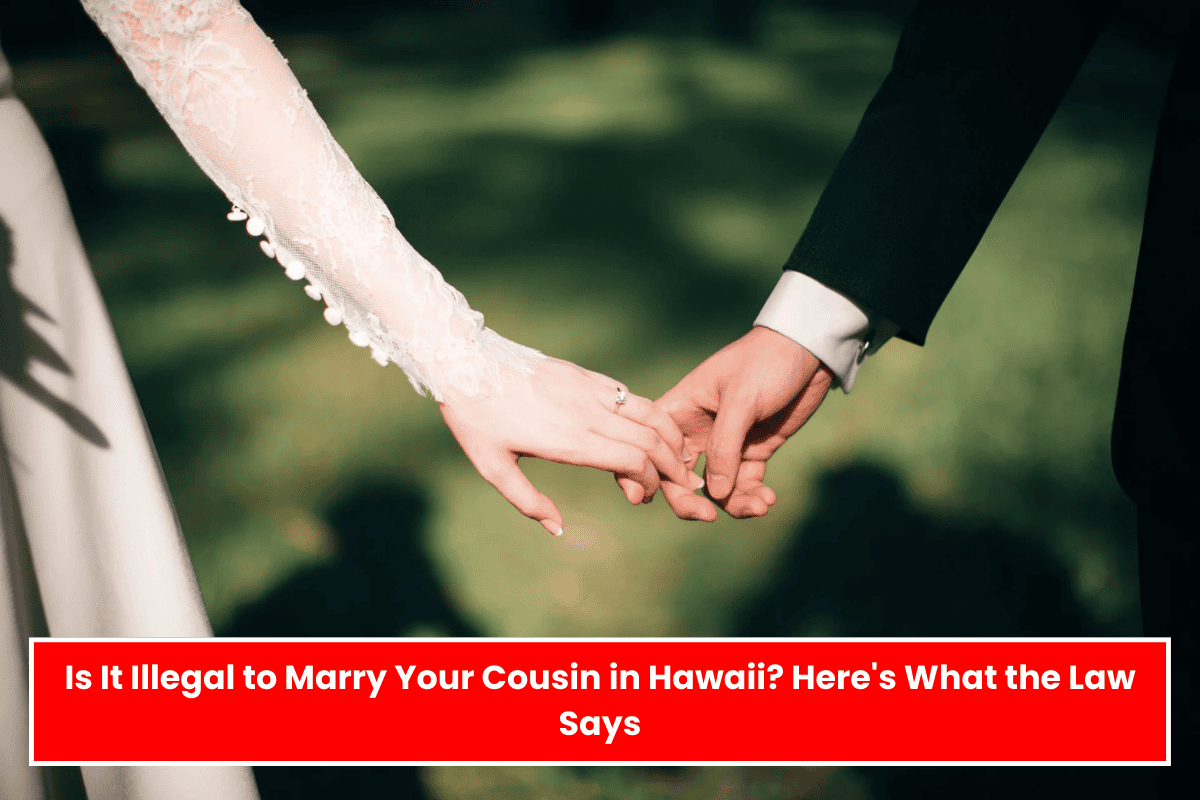In Hawaii, it is legal for first cousins to marry. The state’s marriage laws allow a variety of cousin relationships, but they do place restrictions on closer familial connections, such as siblings. If you’re considering marrying a first cousin in Hawaii, here’s everything you need to know about the legal process, requirements, and other important details.
Legal Framework for Cousin Marriages in Hawaii
First Cousins Are Allowed:
Hawaii does not prohibit marriages between first cousins. The state’s marriage laws focus on preventing unions between closer relatives, such as siblings (both full and half-blood), and other immediate family members. Since first cousins aren’t included in the prohibitions, their marriages are legally permitted.
Marriage License Requirements:
Couples wishing to marry in Hawaii must apply for a marriage license. During the application process, you will be asked about your relationship with your partner. Being first cousins will not prevent you from obtaining a marriage license. However, you may need to clarify your relationship to the clerk.
No Residency Requirement:
Hawaii makes it easy for both residents and non-residents to marry in the state. There is no residency requirement, meaning you don’t have to live in Hawaii or be a U.S. citizen to get married there. This flexibility makes Hawaii a popular destination for couples seeking a scenic wedding location.
The Application Process for a Marriage License
To get married in Hawaii, you must apply for a marriage license in person. While you can download the application form from the Hawaii state government website, the process cannot be completed online or by mail. You’ll need to meet with a marriage license clerk either in Honolulu or at another licensed location on one of the islands.
Important Note: The application asks whether the couple shares a blood relationship. If you’re first cousins, you may need to explain that your parents are siblings, but this won’t prevent you from getting the license.
Types of Cousins Allowed to Marry in Hawaii
Hawaii permits marriages between various types of cousins, including:
- First cousins
- First cousins once removed
- Second cousins
- Third cousins
- Fourth cousins and beyond
If you are unsure about the nature of your cousin relationship, it’s important to clarify the difference between a first cousin and other types, such as half-siblings, who are prohibited from marrying in Hawaii. The state’s laws do not allow half-siblings to marry, whether they are full or half-blood.
Prohibited Marriages in Hawaii
While cousin marriages are allowed in Hawaii, the state does have restrictions on certain relationships. The following marriages are not allowed:
- Siblings (both full and half-blood)
- Parent and child (any degree)
- Uncles and nieces, aunts and nephews (whether legitimate or illegitimate)
- Bigamous marriages (marriages where one or both parties are already married)
Why First Cousins Are Legal to Marry in Hawaii
You might wonder why first cousins are explicitly allowed when other close family relationships are prohibited. Hawaii law simply does not restrict marriages between first cousins. The law focuses on closer blood relationships, such as siblings and parent-child unions. There are no special conditions for first cousins other than that they must not be closer than this.
Catholic Marriages in Hawaii
If you plan to marry your first cousin in a Catholic church in Hawaii, there may be additional considerations. Historically, the Catholic Church has had reservations about first cousin marriages. However, in recent years, the Church has relaxed some of these restrictions.
Couples wishing to marry in a Catholic church must seek dispensation from the Church hierarchy. This is a special permission granted by the church to allow the marriage. Second cousins and further relationships do not require dispensation and can marry without special permission.














